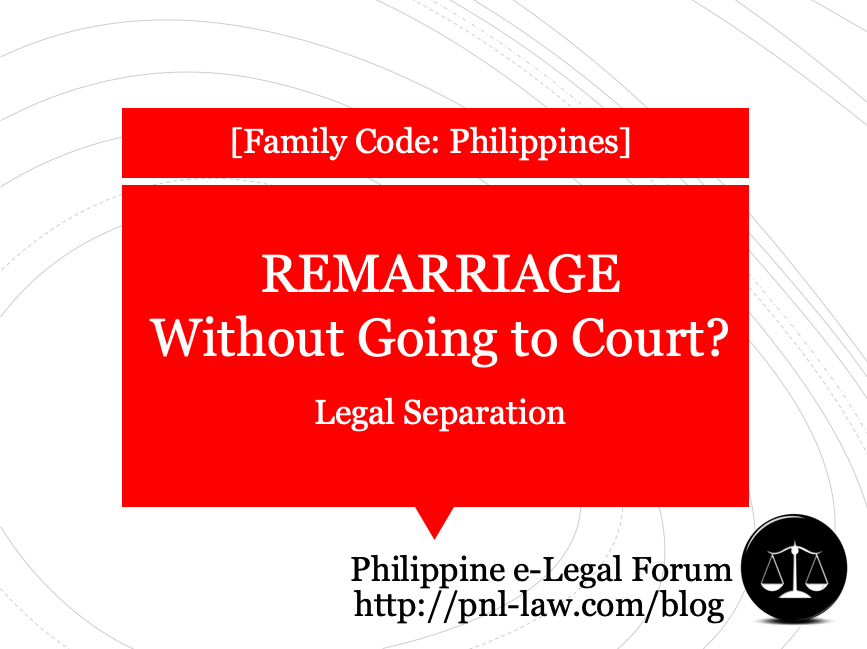There are two legal actions affecting the marital bond between the husband and wife under Philippine laws. One is annulment of marriage, for marriages considered as valid until nullified based on specific grounds. The other action is declaration of nullity of marriage, for marriages that are void from the very beginning.

There is a third action, legal separation, but this cannot be lumped with annulment of marriage/declaration of nullity for the simple reason that legal separation has absolutely no effect on the marital bond.
There are two kinds of legal separation: de facto (separation in fact) and de jure (legal separation). Spouses who are separated in fact, without legal proceedings, cannot remarry no matter how many years they have been separated. In such instance the only way a spouse (not the “absent” spouse) can remarry is to seek a judicial declaration of presumptive death, as discussed in the the previous post: Can Someone Remarry Without Going to Court Due to Absence or Separation. De facto separation does not affect the fact of marriage. It also does not affect the property relations between the spouses and their mutual obligation to give support.
Legal separation, even when the court grants the petition for legal separation, does not authorize remarriage by any of the spouses. An action for legal separation does not affect the marital bond between the spouses. It only affects other issues like property relations, support and custody. The Family Code is very specific as to the effect of legal separation. Article 63 of the Family Code provides that the decree of legal separation shall have the following effects:
- (1) The spouses shall be entitled to live separately from each other, but the marriage bonds shall not be severed;
- (2) The absolute community or the conjugal partnership shall be dissolved and liquidated but the offending spouse shall have no right to any share of the net profits earned by the absolute community or the conjugal partnership;
- (3) The custody of the minor children shall be awarded to the innocent spouse; and
- (4) The offending spouse shall be disqualified from inheriting from the innocent spouse by intestate succession. Moreover, provisions in favor of the offending spouse made in the will of the innocent spouse shall be revoked by operation of law.
In consultations involving legal separation, one of the initial questions we ask is this: do you intend to remarry? The answer is always the same: yes, they intend to remarry. Unfortunately, spouses who are legally separated cannot remarry. If the do remarry, the subsequent marriage is void and both parties in the subsequent marriage may be charged with bigamy. [See also How Many Years Before a Marriage Becomes Void in the Philippines]
- Twin-Notice Rule and Procedural Requirements in Employment Termination Proceedings - June 3, 2020
- When Travel Pass is Needed for Interzonal Travel during Community Quarantine - June 1, 2020
- Can Companies Compel Employees to Work during the General Community Quarantine (GCQ) and Impose Disciplinary Sanctions - May 29, 2020
